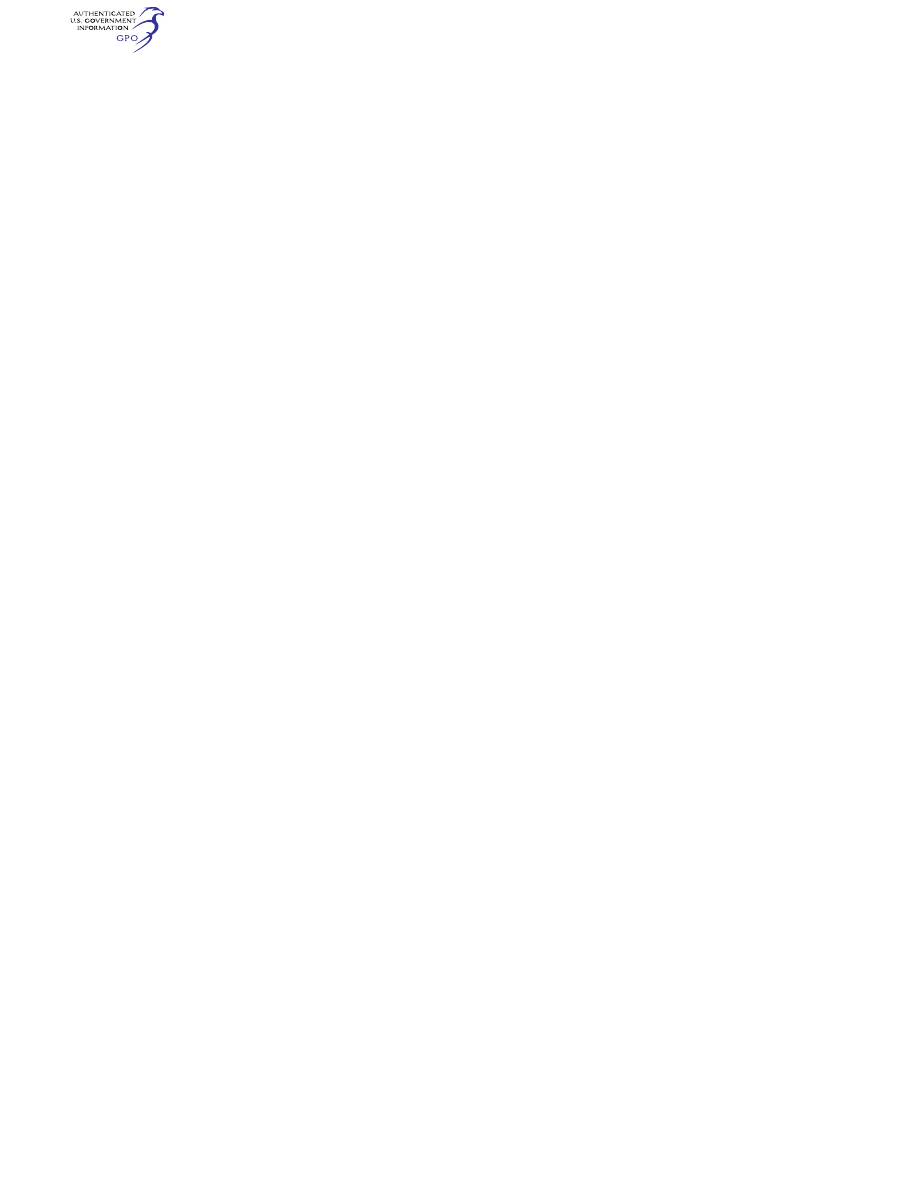
863
Federal Aviation Administration, DOT
§ 93.319
less than 3,000 feet above airport ele-
vation, for the purpose of landing at or
taking off from that facility; or
(g) Is conducted under an instrument
flight rules (IFR) clearance and the
pilot is acting in accordance with ATC
instructions. An IFR flight plan may
not be filed on a route or at an altitude
that would require operation in an area
described in § 93.305.
[Doc. No. 28537, 61 FR 69330, Dec. 31, 1996, as
amended by Amdt. 93–80, 65 FR 17742, 17743,
Apr. 4, 2000; Amdt. 93-102, 83 FR 48212, Sept.
24, 2018]
§ 93.311
Minimum terrain clearance.
Except in an emergency, when nec-
essary for takeoff or landing, or unless
otherwise authorized by the respon-
sible Flight Standards Office for a pur-
pose listed in § 93.309(c), no person may
operate an aircraft within 500 feet of
any terrain or structure located be-
tween the north and south rims of the
Grand Canyon.
[Docket No. FAA-2018-0851, Amdt. 93-102, 83
FR 48212, Sept. 24, 2018]
§ 93.313
Communications.
Except when in contact with the
Grand Canyon National Park Airport
Traffic Control Tower during arrival or
departure or on a search and rescue
mission directed by the U.S. Air Force
Rescue Coordination Center, no person
may operate an aircraft in the Special
Flight Rules Area unless he monitors
the appropriate frequency continuously
while in that airspace.
§ 93.315
Requirements for commercial
Special Flight Rules Area oper-
ations.
Each person conducting commercial
Special Flight Rules Area operations
must be certificated in accordance
with Part 119 for Part 135 or 121 oper-
ations and hold appropriate Grand Can-
yon National Park Special Flight
Rules Area operations specifications.
[65 FR 17732, Apr. 4, 2000]
§ 93.316
[Reserved]
§ 93.317
Commercial Special Flight
Rules Area operation curfew.
Unless otherwise authorized by the
responsible Flight Standards Office, no
person may conduct a commercial Spe-
cial Flight Rules Area operation in the
Dragon and Zuni Point corridors dur-
ing the following flight-free periods:
(a) Summer season (May 1–Sep-
tember 30)–6 p.m. to 8 a.m. daily; and
(b) Winter season (October 1–April
30)–5 p.m. to 9 a.m. daily.
[65 FR 17732, Apr. 4, 2000, as amended by
Amdt. 93-102, 83 FR 48213, Sept. 24, 2018]
§ 93.319
Commercial air tour limita-
tions.
(a) Unless excepted under paragraph
(f) or (g) of this section, no certificate
holder certificated in accordance with
part 119 for part 121 or 135 operations
may conduct more commercial air
tours in the Grand Canyon National
Park in any calendar year than the
number of allocations specified on the
certificate holder’s operations speci-
fications.
(b) The Administrator determines the
number of initial allocations for each
certificate holder based on the total
number of commercial air tours con-
ducted by the certificate holder and re-
ported to the FAA during the period
beginning on May 1, 1997 and ending on
April 30, 1998, unless excepted under
paragraph (g).
(c) Certificate holders who conducted
commercial air tours during the base
year and reported them to the FAA re-
ceive an initial allocation.
(d) A certificate holder must use one
allocation for each flight that is a com-
mercial air tour, unless excepted under
paragraph (f) or (g) of this section.
(e) Each certificate holder’s oper-
ation specifications will identify the
following information, as applicable:
(1) Total SFRA allocations; and
(2) Dragon corridor and Zuni Point
corridor allocations.
(f) Certificate holders satisfying the
requirements of § 93.315 of this subpart
are not required to use a commercial
air tour allocation for each commercial
air tour flight in the GCNP SFRA pro-
vided the following conditions are sat-
isfied:
(1) The certificate holder conducts its
operations in conformance with the
routes and airspace authorizations as
specified in its Grand Canyon National
Park Special Flight Rules Area oper-
ations specifications;
VerDate Sep<11>2014
14:00 Mar 14, 2024
Jkt 262047
PO 00000
Frm 00873
Fmt 8010
Sfmt 8010
Q:\14\14V2.TXT
PC31
aworley on LAPBH6H6L3 with DISTILLER